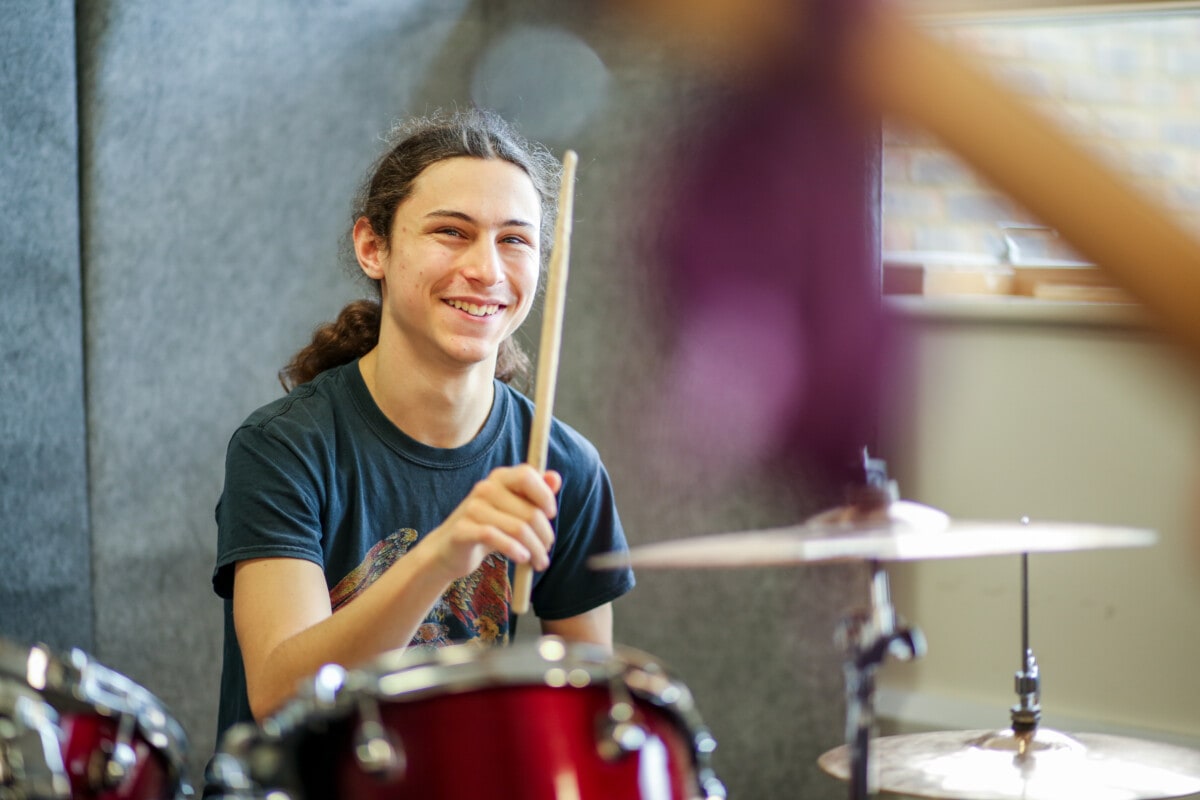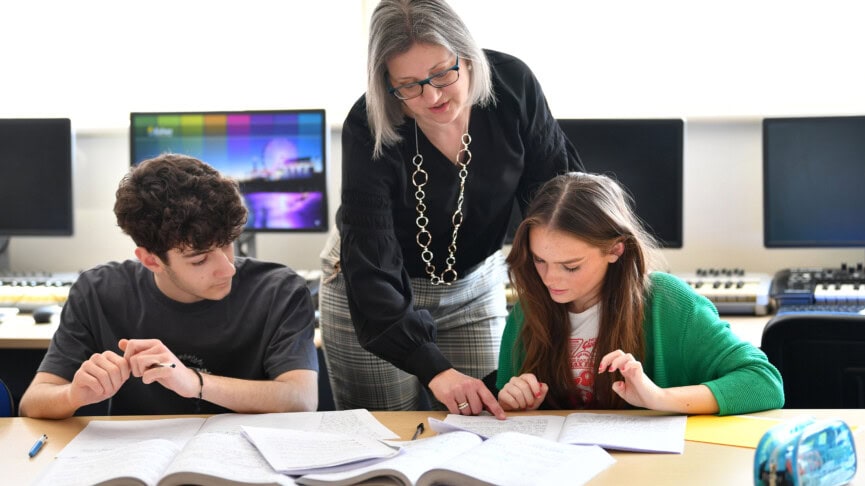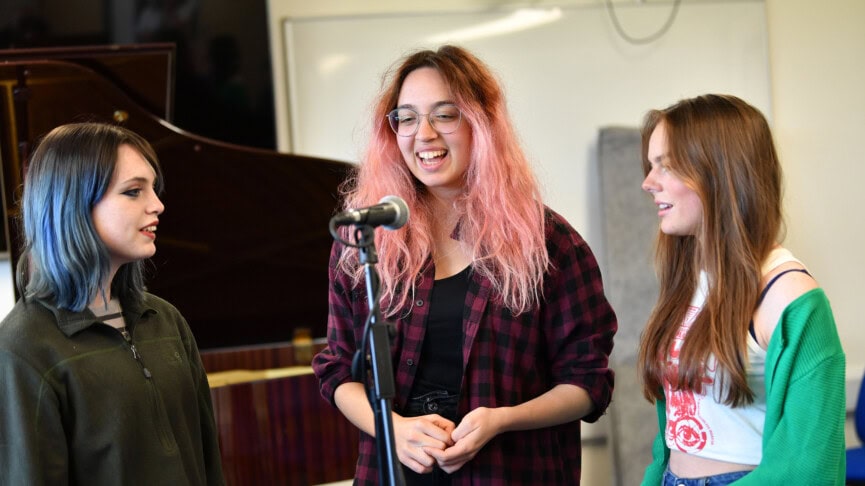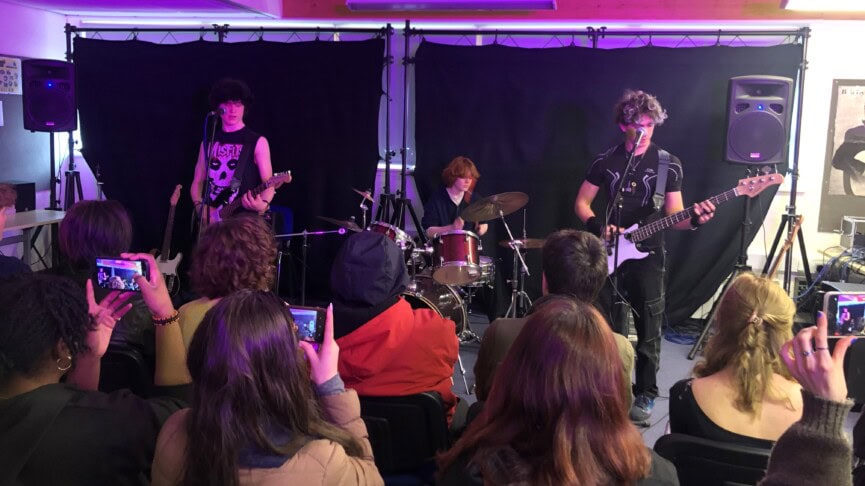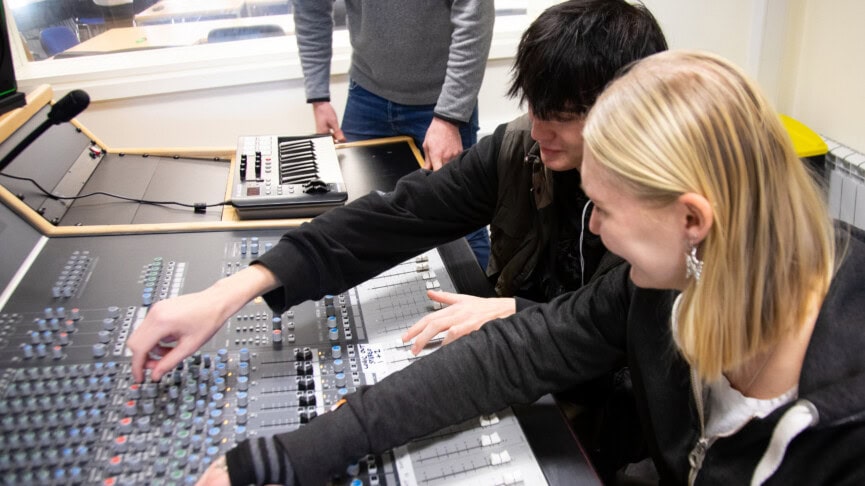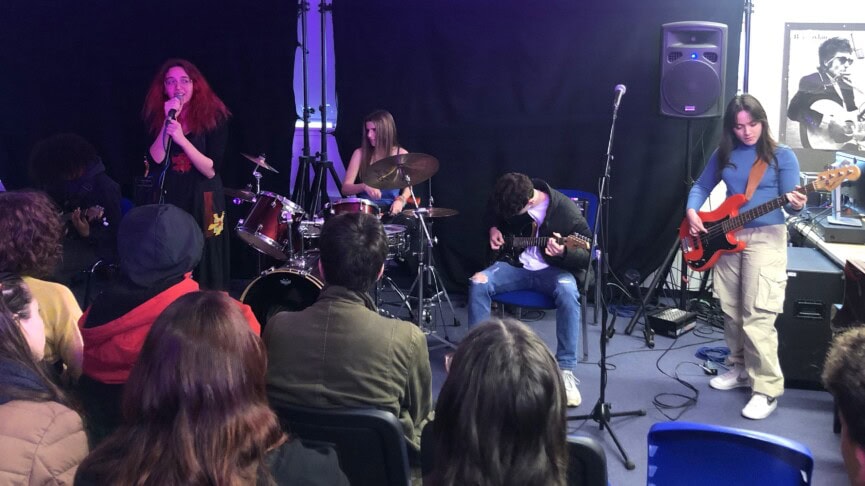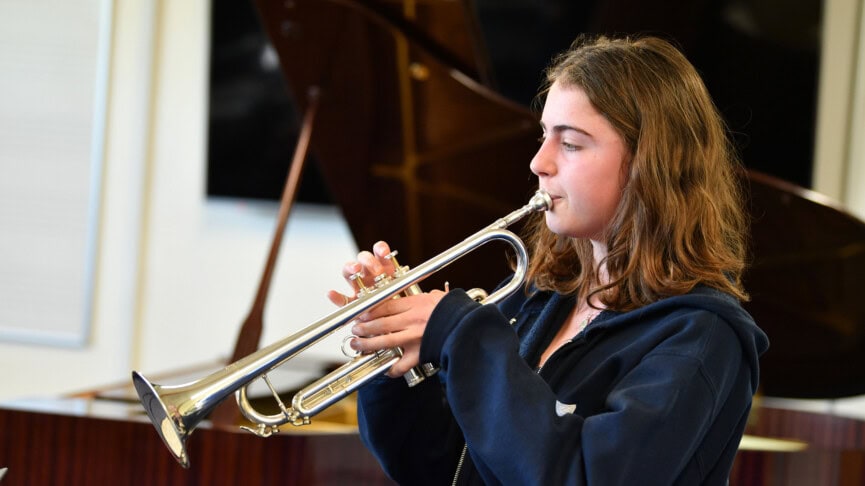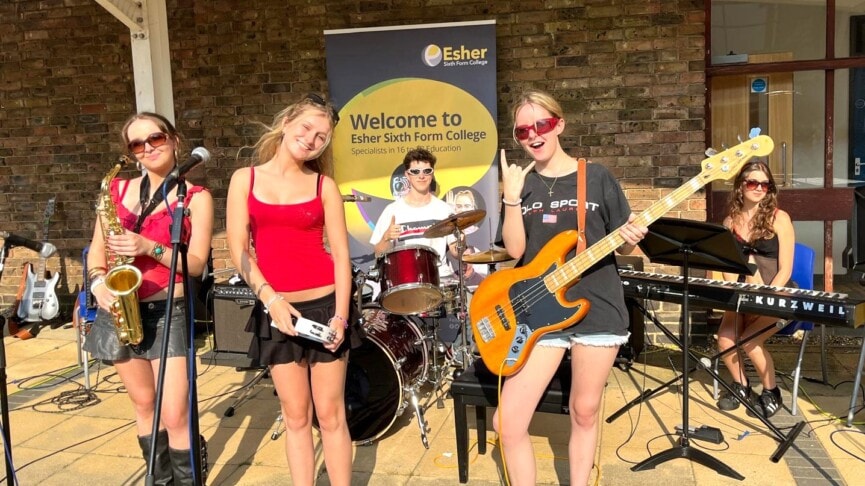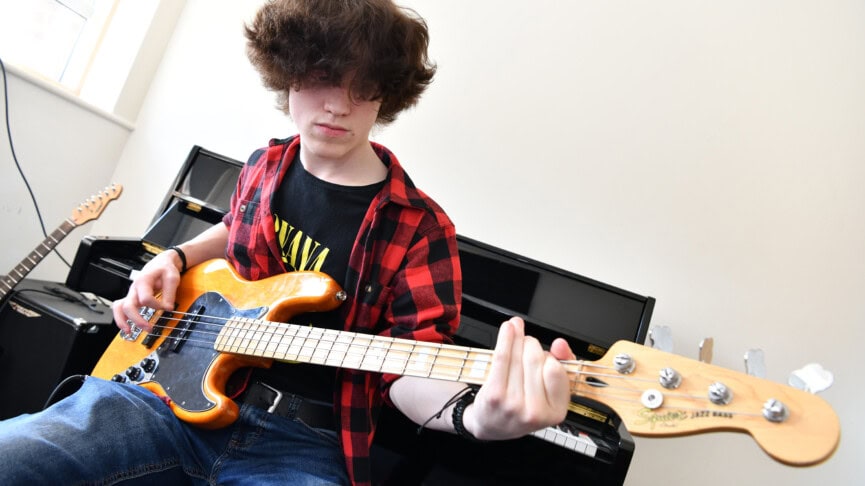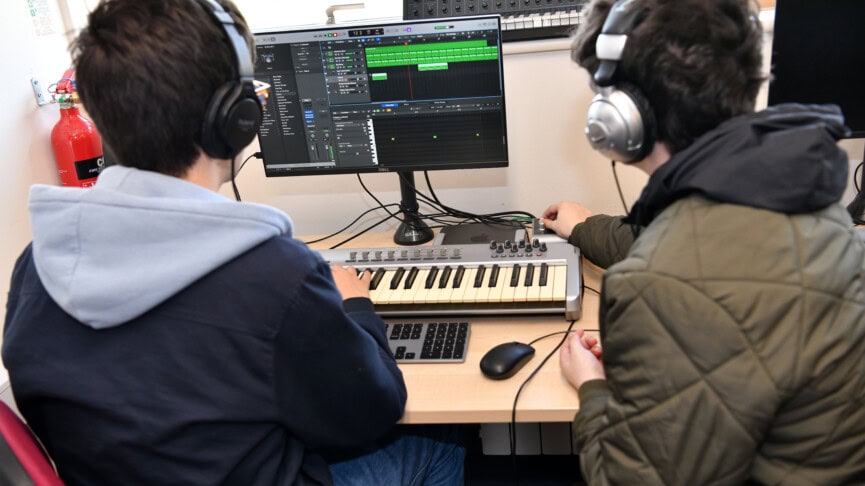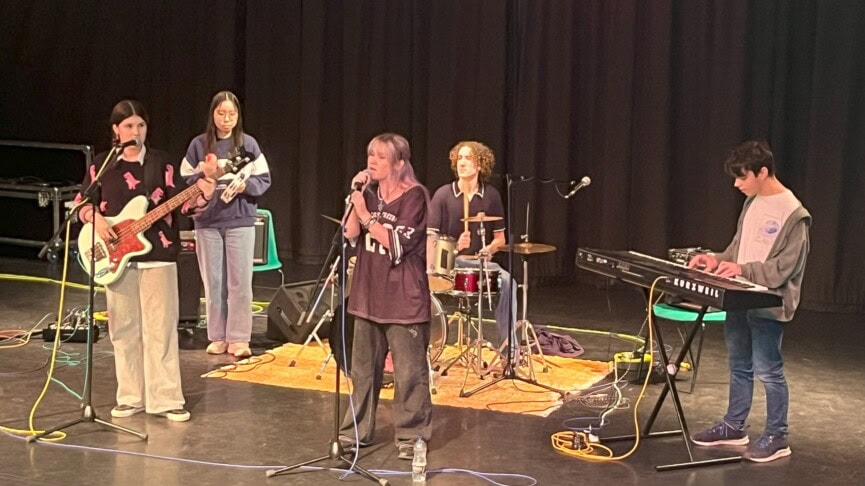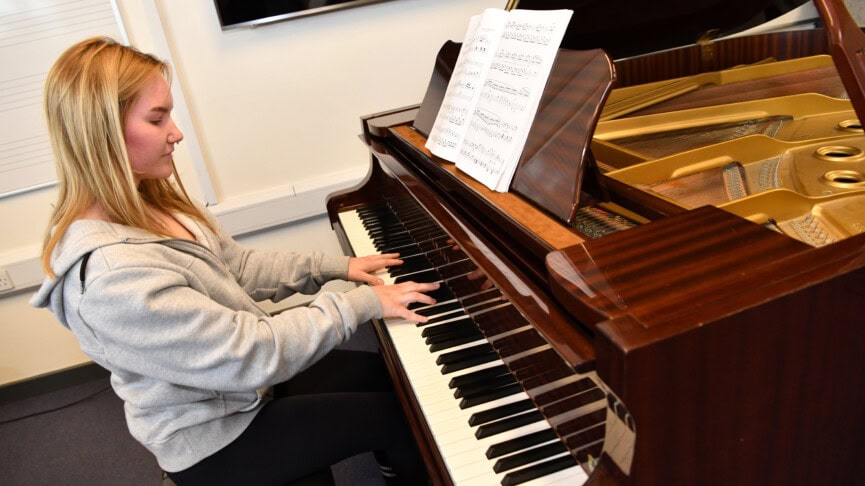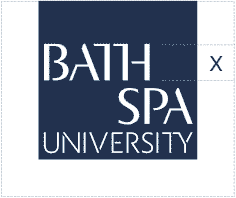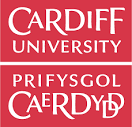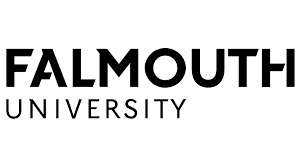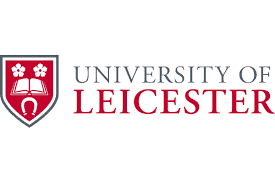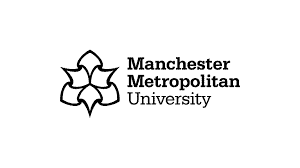Overview
Music is a dynamic, creative, challenging, and exciting subject which draws on the experiences and knowledge you will have gained at GCSE and from years of learning, practicing and performing on an instrument. You should be a musician who is interested in all aspects of listening to music, composing music, reading musical scores and performing music in solo and ensemble settings. You will enjoy studying and learning about a wide range of music in its context, period and style and its impact on the history and development of musical genres. There are three components: Performing, Composing, and Listening and Analysis, which involves studying a variety of set works.
Music students have the opportunity to study in a purpose built centre with access to; fully equipped practice rooms, rehearsal and performance spaces, industry standard recording facilities and equipment, technician support, and a Mac computer suite.
Entry Requirements
In addition to the College Entry Requirements, to qualify for this course you will also need to achieve a minimum of:
- Grade 4 in Music GCSE, if taken.
- Performance at a minimum level of Grade 5, ability to read standard notation and ideally up to Music Theory Grade 5.
Course Details
The first year comprises solo and ensemble performing, for coursework and for concerts; composing to a set brief, music theory and harmony in the form of four-part writing; listening to and analysing familiar and unfamiliar music, using an anthology of scores.
The second year will cover extended performance skills, in the form of an eight-minute recital; two compositions (one to a formal brief, one compositional techniques paper); contextual studies; extended listening techniques, including dictation and chord identification; and analysis of set scores, demonstrated through evaluative and analytical essay writing.
Set works include vocal works by J.S. Bach, Vaughan-Williams, and symphonic music such as Berlioz Symphonie Fantastique and Stravinsky’s Rite Of Spring, chamber music by Clara Schumann, film music by Danny Elfman and Bernard Herrmann, piano music by Debussy, and popular music by The Beatles, Kate Bush, Anoushka Shankar and Courtney Pine.
Assessment
Performing (30%): This is assessed through a final recital performance to an audience. You can play a solo, duet, trio or quartet but must have an undoubled part. If music is written to be accompanied you must perform it with the accompaniment, either as a backing track or live accompanist. The performance standard expected is minimum Grade 6.
Composing (30%): You will submit a score and a recording of your work. Your score can be a traditional musical score, a lead sheet, or a graphic score comprising a series of annotated screen shots, if composing using music technology. You will also complete a harmonisation of a chorale melody in the style of J.S. Bach using four-part harmony.
Listening and Appraising (40%): This is assessed in a final written exam paper where you will undertake questions which assess your aural and listening skills, and two essay-style questions.
Subject Combinations
In view of the creative element entailed in Music, it will suit partnership with English, Art, Media and Social Science subjects. Due to the scientific nature of the subject, Music also works well with Mathematics and Physics.
However, Music is the sort of course you take because you have a long-held interest in it, so many students tend to opt for it purely on that basis and it is not dependent on which other subjects you are choosing.
Music can be taken with Music Technology BTEC as the two subjects complement each other well.
University Destinations
Music A Level is a highly respected qualification, with 80% of our Music students going on to study a music-related degree.
Here are some typical university destinations that our Music A Level students go onto. Click on a destination to see some examples of courses they have taken;
Careers
Many employers are interested in students taking Music A Level for its artistic and creative aspects, which can lead potential employees into fields such as film, theatre, media and marketing. Other careers stemming from the study of music are teaching, professional performance, advertising and studio-based work including sound engineering (although you may need to undertake relevant work experience or particular studies to secure studio work).
Music at degree level is incredibly varied from institution to institution, so it is necessary to consider which element of music you want to pursue. Some courses focus largely on performance, some on composition, some on academic, analytical and technical study, and some on popular music, jazz and world music styles.
If, for example, you love performance but you’re not keen on academic music, you might want to apply for a performance diploma at a music college rather than a degree. If you’re not a strong performer but you enjoy analysis, a traditional university may have a course which suits this balance. If you want to compose music for film, gaming, and television there are specific universities which offer such course options. There are many career opportunities in the music industry for music composers, song-writers and those with creative flair.
FAQs
Do I need Music GCSE to study Music at A level?
The skills demanded for A Level are very similar to those required at GCSE, but Music GCSE is not a requirement to take the course. What is important is that you take note of the formal requirements detailed above, and undertake some music composition work over the summer prior to beginning your studies. It is very useful to have followed a Music GCSE course however, as you will understand the three strands required in Music education.
What skills will I need to develop on this course?
A broad knowledge of music and a desire to listen to a wide range of music from different periods, styles and genres is essential. Performance skills to a minimum of Grade 6 standard on any instrument/voice, fluent notation reading skills to the level of ABRSM Grade 5 music theory, creative skill in order to compose, annotating skills in order to take notes on the Anthology set work pieces you will be analysing, and some basic keyboard skills are also helpful.
What is the difference between Music and Music Technology?
In Music A Level, we study music from all periods of history, perform, compose and develop listening and analysis skills. Whilst we use studio equipment to record performances and music software to work on composition, we do not study the technical side. Music Technology BTEC involves the study of sound recording equipment and methods of studio recording and sequencing with some musical elements in written work, whereas the ICT element of Music is really a by-product of the course requirements.
What extra support/enrichment activities are on offer?
Music is delivered in a new purpose-built centre allowing students access to recording and practice facilities. There are regular concerts and open-mic events, facilitating both solo and ensemble performance, contemporary choir, jazz groups, rock bands, and the opportunity to form smaller ensembles. Sometimes, we take students out for performances in the wider community at Christmas and in the summer term.
There are a number of trips including the chance to attend Opera, Symphony Concerts, Musicals, Folk and Jazz Events. There are also yearly workshops on recording, composition and performance techniques led by professionals in their field.
Students have access to computers running Sibelius and Muse Score, Logic and Garage Band, to assist with composition coursework completion.
